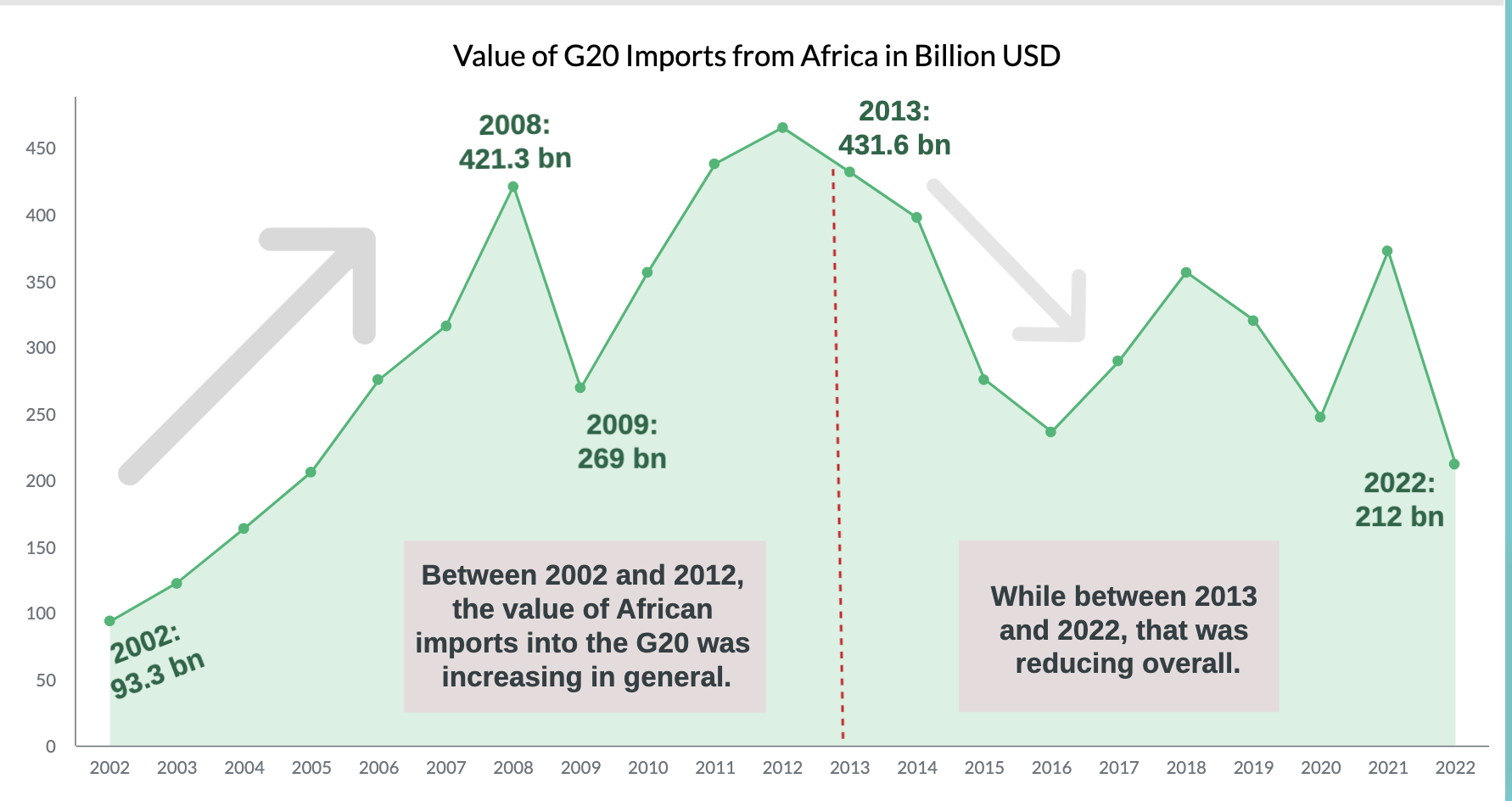Over the past year, Development Reimagined has been leading the call for the African Union (AU) to join the G20 as a permanent member to form the “G21”. The continent’s inclusion into the G20 will not only provide a platform for African voices to be heard within the multilateral system but will also improve multilateralism as a whole!
The AU has a long-established history as a key voice for the continent – dating back 60 years. Consequently, the continent’s economic weight should not be overlooked. Indeed, according to the World Bank, in 2023 91% of African economies are projected to grow above the global forecast of 1.7% growth, reflecting the fact that the continent will continue to power growth into the future.
So, if the AU joins the G20, what tangible differences will the continent experience? One major aspect which we expect to shift would be the African continent’s trade relationship with both G20 powers and the rest of the world.
Currently, the largest importers of African products into the G20 are the EU (including France, Germany, and Italy, which accounts for 41.7% of G20 imports from Africa), China (11.1%), and the USA (10.4%). In terms of exports to the African continent, G20 countries that dominate are China (22.3% of total G20 exports), the EU (including Germany, France, and Italy at 29.2%) and the US (8.7%).
Yet, putting this in a wider global perspective shows that, on average, just 3% of all products imported by the G20 come from African countries. By percentage, South Africa – the only African G20 country – imports the largest total share of African goods, at 9.8%. Comparatively, African imports only account for 0.2% of Mexico’s global imports!
Perhaps unsurprisingly, most African countries have an overall trade deficit with G20 countries, with only 15 African countries having a trade surplus with half or more of the G20 countries. Yet, these countries are abundant in natural resources countries, with a significant lack of value-added trade overall.
At DR, we believe the AU joining the G20 will have two major impacts.
1. First, the AU can table specific, G20-related reforms to enhance trade within G20 forums. This includes policies such as phasing out domestic agricultural subsidies in G20 countries and extending current preferential agreements to the entire African continent, especially given the launch of the AfCFTA.
2. Second, new policies can be fostered to encourage value-added trade and investment from G20 countries within Africa. The continent possesses similar economic advantages as China and other major emerging trade players, such as a large youth population and opportunities for manufacturing investment. The G20 can support Africa to sustainably enter and shift up global supply chains and needs to realise the significance of African trade. The G20 should look to implement trade-facilitating policies with African partners, in particular, to align with AfCFTA on preferential trade agreements, to encourage this shift for mutually beneficial outcomes.
Overall, a G21 which has strong African representation, delivered by the AU, would enhance African voices in the international system. Through these collective efforts, Africa can strengthen its global engagement, influence decision-making, and drive positive change for the continent’s development and prosperity.
To find out more about why the G20 needs the AU and how the AU can effectively engage with the group, you can read our bespoke policy brief, or watch our recent webinars with high-level experts at the Paris Financing Summit and the BRICS Summit.

To find out how Development Reimagined can support you, your organisation, or Government, please email the team at clients@developmentreimagined.com.
Special thanks go to Yixin Yu, Christy Un, Jade Scarfe, and Ivory Kairo for their work on this infographic, collecting/analysing the underlying data and this accompanying article.
August 2023


